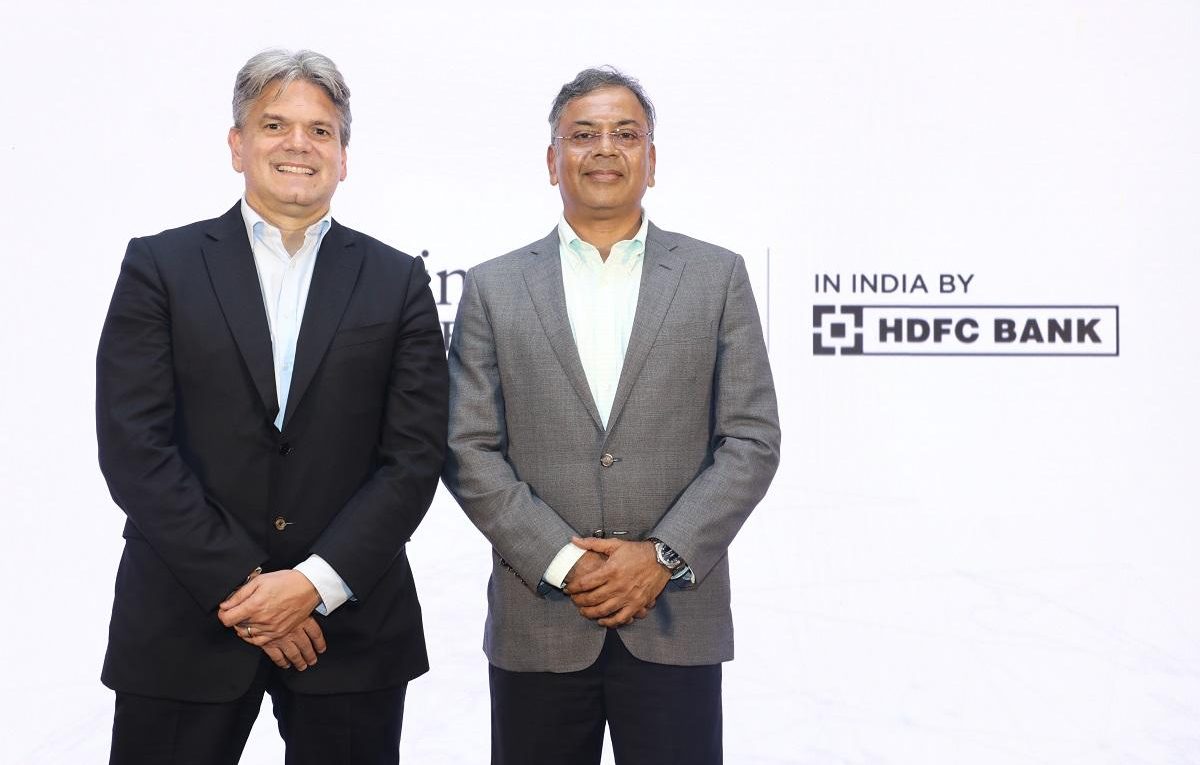HDFC Bank and Diners Club eye B2B space to push credit card growth
With over 18 million cards in circulation, HDFC Bank is the largest issuer of credit cards in India with monthly spends of around Rs 40,000 crore.
Parag Rao, Country Head – Payment Business, Consumer Finance, Technology and Digital Banking, HDFC Bank, says that along with the retail or the individual segment, the opportunity for credit cards in the business-to-business sector in India is significantly growing.
“By B2B we mean card spends done by the government, or institutions, or small and medium enterprises who use the card to make payments with suppliers – that’s a very large segment; opportunity-wise, it is equal to the retail segment,” Rao told Business Standard, in a joint interaction with Ricardo Leite, Senior Vice President, Head of International Markets, Discover Financial Services, which owns Diners Club.
“I strongly believe that the HDFC Bank portfolio will continue to grow, not only in the consumer side and the co-brands but also on the commercial payments side, the B2B space. There is a tremendous amount of volume – the ticket size is very large because that business makes payments to businesses, and that is driving considerable growth in the portfolio,” Leite said.
HDFC Bank and Diners have had an association for over 10 years. The bank is the only lender in India that has an association with Diners.
“Our plan is to continue to grow the Diners Club portfolio. We have just announced a co-branded card with Marriott, which is a Diners Club brand,” Leite said.
Last month, HDFC Bank joined hands with Marriott Bonvoy, Marriott International’s travel programme, to launch the ‘Marriott Bonvoy HDFC Bank Credit Card’, which is touted as the country’s first co-branded hotel credit card. The co-branded credit card will run on the Diners Club network.
HDFC Bank is one of the largest issuers of cards for the premium and super-premium segments, and the Diners network contributes 30 per cent of that segment.
“By number, the premium segment will not be more than 5-6 per cent. But by value, it is closer to 25 per cent,” says Rao.
In the B2B segment, HDFC Bank has a Flipkart-Diners wholesale card, which is typically offered to small retailers who normally make purchases from different distributors. They also go to Flipkart to meet their wholesale needs in a month. “This card then gives them significant value on their monthly purchases. That is a very large space. That space is emerging and growing significantly,” Rao said.
The largest private-sector lender is also targeting the premium SME segment – which comprises individuals who are not salaried but have the same lifestyle aspirations as those who are.
“That is another area where the Diners and HDFC Bank franchise will be targeting,” said Rao, who expects that by 2030, 30 per cent of Indian households will be classified as a premium segment, having more than Rs 10 lakh per annum household income.
In May 2021, the Reserve Bank of India put restrictions on Diners Club from on-boarding new customers after it failed to meet local data storage norms. The restrictions were lifted in November 2021.
Leite says they are seeing triple-digit growth since the restrictions were lifted.
“We are seeing triple-digit growth rates consistently (post the embargo), which is driving consumer and commercial payments,” Leite said.
Discover says the regulator has raised the bar; for any player to do business in India, one needs to invest more.
“…the regulatory environment – some may put it as a challenge. Yes, it is a challenge because it requires you to invest more to make sure to do everything to comply with the regulations, but at the same time, it raises the bar in terms of security and consumer data protection. The requirements to be successful in India have increased considerably, which requires us to invest more and more,” Leite added.
